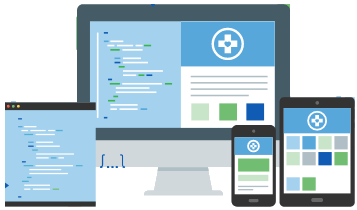Six Benefits of IoT In Healthcare Industry
There is no doubt that the IoT (Internet of Things) is transforming the healthcare industry by redefining the interrelationships between apps and devices and people in delivering healthcare solutions. The IoT continues to constantly provide new tools to better treat patients, significantly reduce the cost of health care, and improve treatment outcomes.
This will provide health-related promoters and hospitals with a variety of opportunities to automate workflows and improve processes at the same time. For example, many hospitals use the IoT for asset management and operating room air conditioning.

Six Major Benefits of Adopting IoT by Medical Institutions
Cost savings
Healthcare providers can take advantage of connectivity to enable real-time patient monitoring and reduce the cost of wasted doctor visits. Especially for advanced home care facilities, it can be said that the cost can be definitely reduced because the number of hospital stays and patient revisits is reduced.
Better therapeutic effects
Healthcare solutions that use connectivity through cloud computing and other virtual infrastructures not only provide the care recipient with real-time information to make decisions, but are also based on more detailed data. Allows treatment. As a result, the countermeasures will be timely, and as a result, the therapeutic effect will be improved.
Better Disease Management
Patients can be continually monitored and treatment providers have real-time data available to treat illness before it becomes unmanageable.
Reduction
The combination of accurate data collection, workflow automation, and data-based decisions can reduce extra waste, costs, and above all, malpractice.
Improving Patient Experience
Realization of a healthcare system that focuses on the needs of patients using IoT. Advancement of treatment, improved diagnostic accuracy, timing of physician intervention, and improved therapeutic efficacy will have convincing results for the patient to accept it.
Improving Drug Management
The healthcare industry is costly to manage as well as to manufacture them. But IoT will also make it easier to manage these costs.
While the IoT is trying to transform the medical field, it also raises a number of challenges due to the difficulty of handling health data. Improper handling of data will ruin your fame. Furthermore, the rationalization, digitization and expansion of these health data to other uses will also put a strain on the data center. Demand for data centers and equipment infrastructure will increase as patient monitoring extends to wearables worn at home, and healthcare professionals will also monitor hourly situations and make predictions from that data. Become.
We also need a standard for sharing data between proprietary healthcare services. As data sharing progresses, data security, of course, becomes a major risk. The amount of data is expected to grow tremendously as information needs to be protected from cyber-attacks. The structure of IoT is powerful as an analysis engine, but it requires a hybrid cloud and a hypervisor (virtual infrastructure). These tools are important for monitoring network compliance and raising alerts in real-time in the event of anomalies including user access, network traffic, system errors, and more.
The demand in the healthcare industry for leveraging technology to increase efficiency will surely grow. The awareness of IoT is expected to increase further in the future. In addition, the growth of the IoT healthcare field depends on “connectivity”, and it must be ensured that the actual action can be derived from the obtained information. However, if that is the case, IoT will be able to establish a solid position in hospitals.

